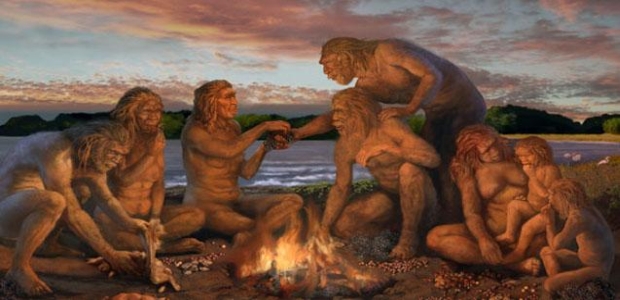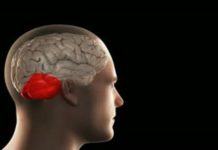There have been certain discoveries which have shaped the evolution of the human race. Some of them being discovery of wheel, fire, electricity, language and many more. A million or so years ago, the amazing evolution of the human brain was sparked by a breakthrough that people everywhere still enjoy every day: cooking.
It is, of course, impossible to imagine a human society that does not have language, but given the right climate and an adequacy of raw wild food, could there be a primitive tribe that survives without cooking? In fact, no such people have ever been found. Nor will they be, according to a provocative theory by Harvard biologist Richard Wrangham. A human body at rest devotes roughly one-fifth of its energy to the brain, regardless of whether it is thinking anything useful, or even thinking at all. Thus, the unprecedented increase in brain size that hominids embarked on around 1.8 million years ago had to be paid for with added calories either taken in or diverted from some other function in the body. Many anthropologists think the key breakthrough was adding meat to the diet.
Having said that, another interesting observation made by Wrangham and his Harvard colleague Rachel Carmody is that it doesn’t matter what amount of calorie a person eats rather what happens when it gets inside our body. How much useful energy does it provide, after subtracting the calories spent in chewing, swallowing and digesting? The real breakthrough, they argue, was cooking.
No one can actually predict as to how a particular diet is beneficial for someone. For example some people will gain weight on the same diet that leaves others thin. But what about raw food. Even though it is said that for adults eating raw food is a perfect way to loose weight, at the same time it is dangerous for younger children. Human beings evolved to eat cooked food. It is literally possible to starve to death even while filling one’s stomach with raw food. In the wild, people typically survive only a few months without cooking, even if they can obtain meat. Only a fraction of the calories in raw starch and protein are absorbed by the body directly via the small intestine. The remainder passes into the large bowel, where it is broken down by that organ’s ravenous population of microbes.

Cooked food, by contrast, is mostly digested by the time it enters the colon; for the same amount of calories ingested, the body gets roughly 30 percent more energy from cooked oat, wheat or potato starch as compared to raw, and as much as 78 percent from the protein in an egg. In essence, cooking—including not only heat but also mechanical processes such as chopping and grinding—outsources some of the body’s work of digestion so that more energy is extracted from food and less expended in processing it. Cooking breaks down collagen, the connective tissue in meat, and softens the cell walls of plants to release their stores of starch and fat.
The calories to fuel the bigger brains of successive species of hominids came at the expense of the energy-intensive tissue in the gut, which was shrinking at the same time—you can actually see how the barrel-shaped trunk of the apes morphed into the comparatively narrow-waisted Homo sapiens. Another advantage of cooking was that it freed up time, The great apes spent four to seven hours a day just chewing.
Fire detoxifies some foods that are poisonous when eaten raw, and it kills parasites and bacteria. Again, this comes down to the energy budget. Animals eat raw food without getting sick because their digestive and immune systems have evolved the appropriate defenses. Even our ancestors must have had a very good digestive system. But anything the body does, even on a molecular level, takes energy; by getting the same results from burning wood, human beings can put those calories to better use in their brains. Fire, by keeping people warm at night, made fur unnecessary, and without fur hominids could run farther and faster after prey without overheating. Fire brought hominids out of the trees; by frightening away nocturnal predators, it enabled Homo erectus to sleep safely on the ground, which was part of the process by which bipedalism (and perhaps mind-expanding dreaming) evolved. By bringing people together at one place and time to eat, fire laid the groundwork for pair bonding and, indeed, for human society.
But overall, even though cooking brought about such a significant change for the human society, was it for better or worse. As the global population grows, the demand for firewood grows as well which has resulted in sweeping off entire forests. the average open cooking fire generates as much carbon dioxide as a car. Indoor smoke from cooking causes breathing problems, and heterocyclic amines from grilling or roasting meat are carcinogenic. Who knows how many people are burned or scalded, or cut by cooking utensils, or die in cooking-related house fires? How many valuable nutrients are washed down the sink along with the water in which vegetables were boiled? Cooking has given the world junk food. Wouldn’t the world be a better place without all that?
Everything has its pros and cons. Raw-food advocates are perfectly justified in eating what makes them feel healthy or morally superior, but they make a category error when they presume that what nourished our ancestors like hominids is good enough for us the homo-sapiens. We are, of course, animals, but that doesn’t mean we have to eat like one. In taming fire, we set off on our own evolutionary path, and there is no turning back. We are the cooking animal and lets be proud of it.



































